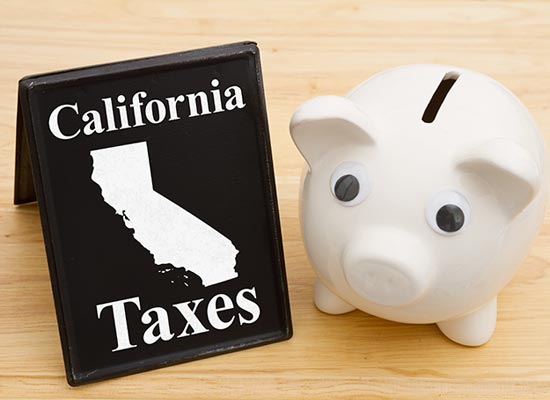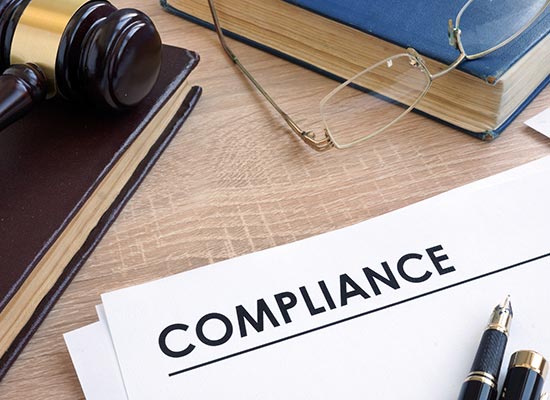WE'LL HELP YOUR BUSINESS MAKE SENSE OF WAYFAIR TAX
One size rarely fits all. Our team of sales tax attorneys can evaluate and execute the best solution for your business in the Wayfair world.
CONTACT US TO DISCUSS YOUR CASE
CALIFORNIA CREATES ECONOMIC NEXUS FOR SALES TAX COLLECTION
NEW SALES TAX RULES FOR REMOTE SELLERS
California recently joined the Wayfair legislation by creating an economic nexus for sales tax collection of $100,000. By way of brief background, in the modern economy, many consumers prefer to purchase a wide variety of products online. For years, most consumers believed that buying items online allowed them to escape paying sales tax. Although this was often incorrect, a recent Supreme Court case has cleared the air by blessing a South Dakota law that forced online companies selling into the state to charge sales tax if they sold more than $100,000 or over 200 transactions per year into the state. By blessing the South Dakota law, many similar statutes have spawned in states across the country requiring any business, including online retailers, to charge, collect, and remit sales tax simply for selling across state lines.
WHAT LAWS WERE IN PLACE BEFOREHAND?
In 2012, six years prior to Wayfair, California created a law that required out-of-state retailers to collect tax if:
- The retailer had an agreement with a person or persons located in California to pay for customer referrals obtained via a link on the California seller’s website (a click-through arrangement)
- the out-of-state retailer’s total cumulative sales to purchasers in California exceed $10,000 during the preceding twelve months, and
- the out-of-state retailer also has total cumulative sales to purchasers in California exceeding $1,000,000.


JUMPING ON THE BANDWAGON
It was recently announced that California will jump on the Wayfair bandwagon and adopt similar legislation. While many in the California legislation believed that current law already allowed the state to impose Wayfair sales tax nexus standards, California officially announced it will impose Wayfair thresholds effective April 1, 2019.
To date, about half of the states have enacted legislation or regulations requiring retailers to collect tax in their state. Many online and multi-state companies have begun the process of registration in all states as many expect the overwhelming majority of the states to follow.
In the wake of Wayfair, a company must decide whether it has nexus or if it will voluntarily comply in a state. But, what is the best way for a company to achieve compliance? The two primary options are 1) register and hope for the best or 2) enter into a voluntary disclosure agreement.
REGISTRATION
Pure registration is an option for companies that wish to register or that have determined they have nexus in a state. Once registered, a company can begin compliance by collecting, reporting and remitting sales and use tax. Most states allow a company to register via an online resource and small fee.
Many software companies blindly push registration but fail to point out the pitfalls. It is often overlooked that registration in most places requires that a company truthfully answer when it began doing business in the state. If a company was doing business (i.e.- had salesmen or independent contractors, inventory, used FBA services, or directly or indirectly performed warranty services) prior to the enactment of a state’s economic nexus enactment, registration can be problematic. Being that a return was never filed, past liabilities are not extinguished through a state’s registration process.


VOLUNTARY DISCLOSURE
Generally, the better solution to nexus issues for online and multi-state retailers is the voluntary disclosure program. Voluntary disclosure agreements offer several key benefits that remain unaddressed in registrations. VDA’s generally limit past liability to 3-5 years, forgive penalties and accomplish registration as part of the process. Due to the recent Wayfair case, many states will even forgive past tax liabilities through negotiations and give companies a fresh start in their state. While it is not required, companies generally use third-party consultants or sales tax attorneys that can assist in what is often a foreign concept for businesses. Although seldom mentioned by software companies, the VDA is often the more appropriate solution for multi-state and online businesses in the post-Wayfair world.
COMPLIANCE
Once registered through either a pure registration or VDA process, compliance can be a daunting task for online or multi-state businesses. Not only must returns be filed, but also a company must evaluate whether the products or services they sell are taxable in different jurisdictions. Further, proper documentation for exempt sales and purchases vary state to state to state. Tax reporting software can be a valuable resource for businesses once registered.
Like most areas of law, one size rarely fits all and each company has its own unique circumstances and history from a state and local tax perspective. While many software companies offer an easy solution for registration and compliance, the VDA solution is usually overlooked or ignored. Our team of sales tax attorneys can evaluate and execute the best solution for your business in the quickly changing Wayfair world.

SCHEDULE A FREE CONSULTATION
We offer a FREE INITIAL CONSULTATION to discuss your pending audit. Why not take advantage of our free initial consultation right now? Even if your sales tax audit already started, we can still help.
ABOUT US
At the Law Offices of Moffa, Sutton, & Donnini, P.A., 90% of our firm's work is focused on Multi-state Sales and Use Tax. With over 100 years of cumulative experience in Sales Tax representation, we are the right choice to represent your company.
Since 1991, our firm has defended companies in virtually every industry in a sales and use tax audit; giving us the experience and know how to not only analyze any areas of exposure you might have, but to also paint your company in the most favorable light. Even for companies with little or no exposure, a sales tax audit can be an unnerving and stressful experience.
Our team of attorneys, CPAs, and former auditors know what the state's auditors are looking for in each particular industry and we will work with you or your accountant or other professional to analyze areas of potential exposure. Wouldn't you rather the audit be performed at one of our offices, eliminating disruptions to your business?



